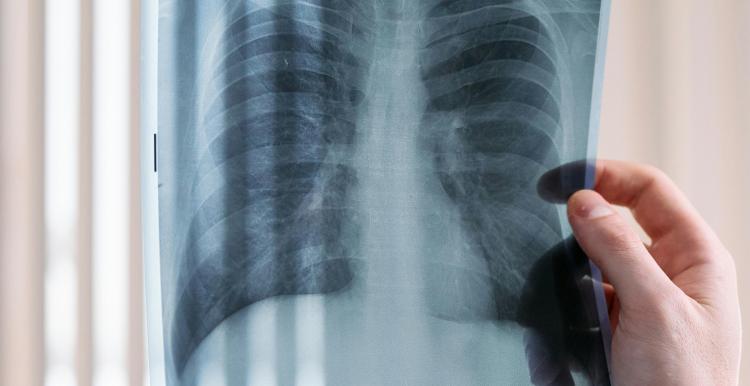AI solution to detect lung cancer launches in south west

- Peninsula Imaging Network (PenRAD) has gone live with Qure.ai’s AI for chest CT (qCT) to help detect lung cancer quicker
- It is the UK’s first commercial deployment of the technology and was completed at five imaging sites across four trusts in Devon, Cornwall and the Isles of Scilly in early 2025
- The AI is currently processing around 1,200 Chest CT scans from patients each week across the four NHS trusts, assisting radiologists with the early detection and monitoring of lung nodules
Qure.ai’s AI for chest CT (qCT) technology was deployed across five imaging sites under PenRAD in January and February 2025 to assist radiologists with the early detection and monitoring of lung nodules, which can indicate lung cancer.
Tej Pandher, consultant radiologist at University Hospitals Plymouth NHS Trust, said:
“Lung nodule AI assistance helps to identify and track suspicious nodules over time.
“The reporting radiologist can then put any such nodules into a clinical context and provide useful information for further follow up and/or treatment.”
The AI service is processing around 1,200 Chest CT scans from patients each week across Royal Cornwall Hospitals NHS Trust, Royal Devon University Healthcare NHS Foundation Trust, Torbay and South Devon NHS Foundation Trust, and University Hospitals Plymouth NHS Trust.
It supports a patient population from a mix of coastal, rural and urban locations in the south west England peninsula.
Surabhi Srivastava, UK business head at Qure.ai, said:
“We are delighted to be live with qCT at PenRAD to support with the digital transformation of healthcare in the region and extend the potential of AI-powered early lung cancer detection.
“Lung cancer is the leading cause of cancer-deaths worldwide, with approximately 75% of patients detected in late-stage disease. Earlier detection can boost survival rates, by over 90% if treatment starts at stage one.”
The Chest CT AI was implemented with funding from the government’s £21m AI Diagnostic Fund (AIDF).
PenRAD chose the qCT solution for its bid to the AIDF, in collaboration with Health Innovation Southwest and the Peninsula Cancer Alliance.
Srivastava added: “qCT has been designed to provide clinical decision support in the detection, characterisation, quantification and monitoring of lung nodules.
“It can also pull patient images from prior examinations to provide comprehensive nodule management and support progression monitoring over time.
“This makes it easier for the clinician to assess the growth of nodules with standardised data for volumetry assessment and an auto assigned malignancy risk score of pulmonary nodules using the Brock model/ British Thoracic Society guidelines.”
In April 2025 Peninsula Pathology Network partnered with UK cloud, connectivity, communications and cyber security provider, Exponential-e to implement a secure private cloud environment.
The network agreed a four-year contract with the provider in February 2024 and went live with the secure private cloud in February 2025.

